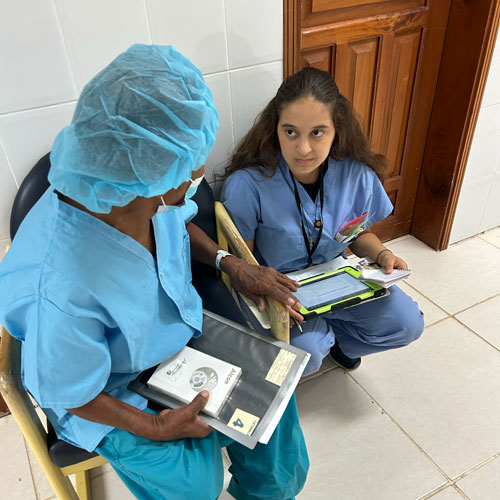
ACE Global is dedicated to using evidence to guide our decision making. Our Global Director of Data and Research, Sara O’Connor, MD, MPH, oversees this process, tracking outcome data and designing novel research projects that help us to understand the impact our work is having and improve the quality and scope of that work.
Our fellows are an integral part of the research process at ACE Global. Each of our fellows participates in one or more research projects during their fellowship, from project design to project presentation, gaining valuable research experience while also helping further the ACE Global mission.
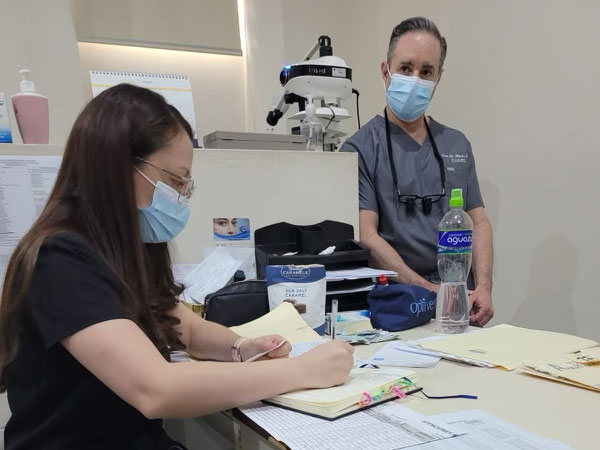
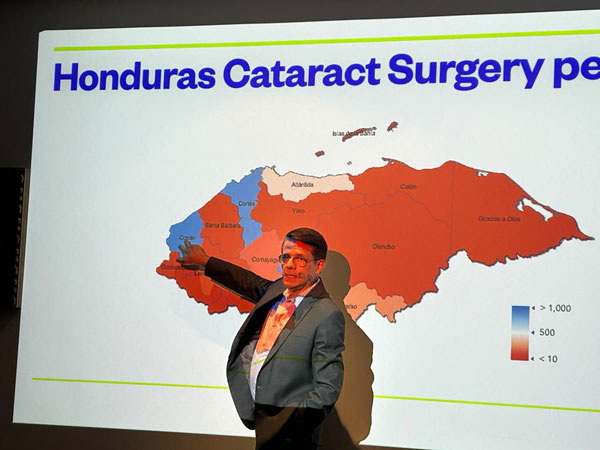
Our work has been presented at national ophthalmology meetings and published in peer-reviewed journals. Below are some of the projects ACE Global has been working on.
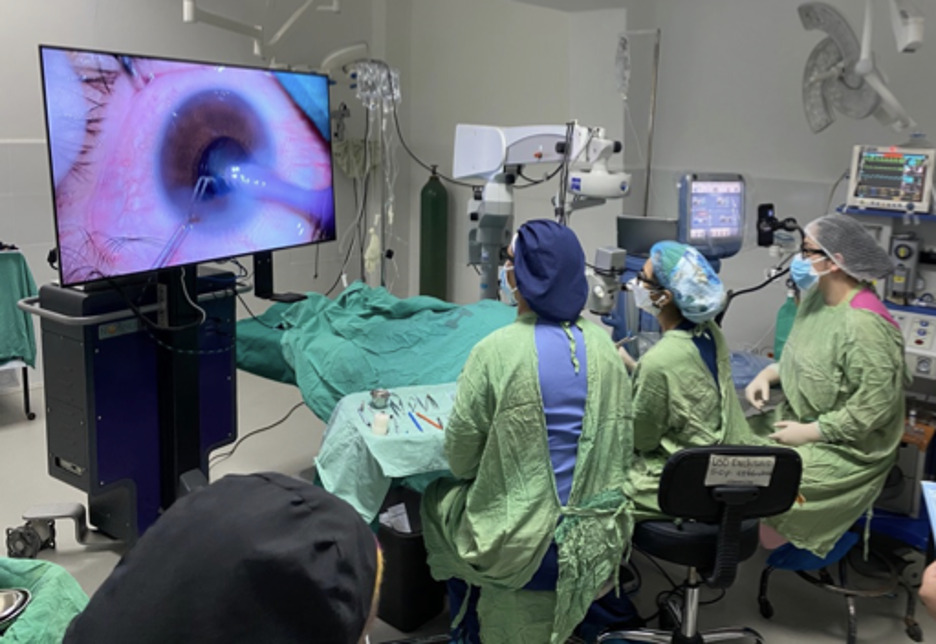
At ACE Global, we felt that our distance surgical mentorship program was improving cataract surgical skills in our mentees, but we wanted to prove it. In a study published in the journal International Journal of Surgical Education, we did just that, showing that over the course of 25 mentored cases, cataract surgical skills increased and average case time decreased in trainee surgeons.
Such evidence may open up new avenues for international training and collaboration, and it may help us get closer to eradicating preventable blindness due to cataracts.
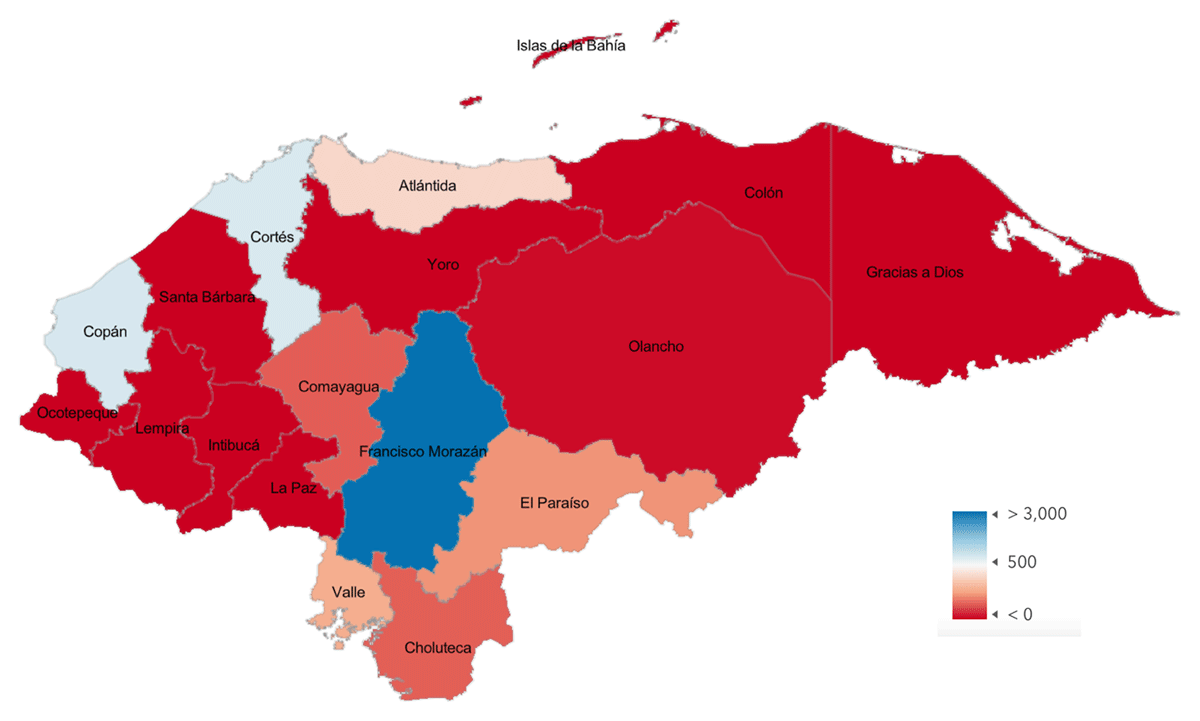
ACE Global is training young surgeons to help eradicate blindness due to cataracts, but where are those surgeons most needed? Where are the best places for us to develop new programs and facilities? Nobody had answers to these questions, so we set out to answer them ourselves.
We surveyed all of the ophthalmologists in Honduras to find out where they work and how much cataract surgery they do. We then mapped that information as it relates to population and poverty. This gave us a much clearer picture of where the needs are the greatest, and it will help guide the efficient development of our programs. This work was published in the peer-reviewed journal The Annals of Global Health, and it could serve as a model for other organizations working to increase healthcare capacity.

ACE Global knew we were helping people when we treated their cataracts, but how exactly were we helping? What are the measurable economic and emotional impacts of cataract surgery in this population?
We didn’t know, so we asked the people who would know best: our patients. It turns out that incomes increased significantly after cataract surgery, and many patients returned to work in the months after surgery.
Interestingly, anxiety levels increased after cataract surgery, particularly among women, an effect that we are still working to understand. Quantifying these impacts helps us better understand the work we do and the impact it has on the patients we are working to help. Specific information on these impacts may also help our advocacy work at the national and international levels.
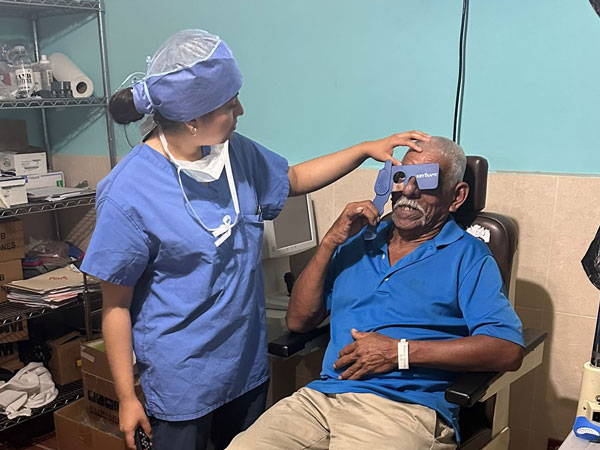
In one of our first studies, 75% of patients reported that their vision still interfered with their ability to work AFTER cataract surgery. This shocked us, and we set out to understand why this would be the case. An initial pilot study suggested that giving patients reading glasses at the time of surgery might change this, so we designed a randomized trial to test this explanation. The trial is ongoing, but preliminary results are presented here.
If you are interested in collaborating on a research project with ACE Global, please reach out to soconnor@acecaresglobal.org.
Global Director of Data and Research
Sara O’Connor is an ophthalmologist with a master’s degree in public health with a focus in epidemiology. She specializes in all stages of the medical research process, including study design, data cleaning, data analysis, and manuscript writing.